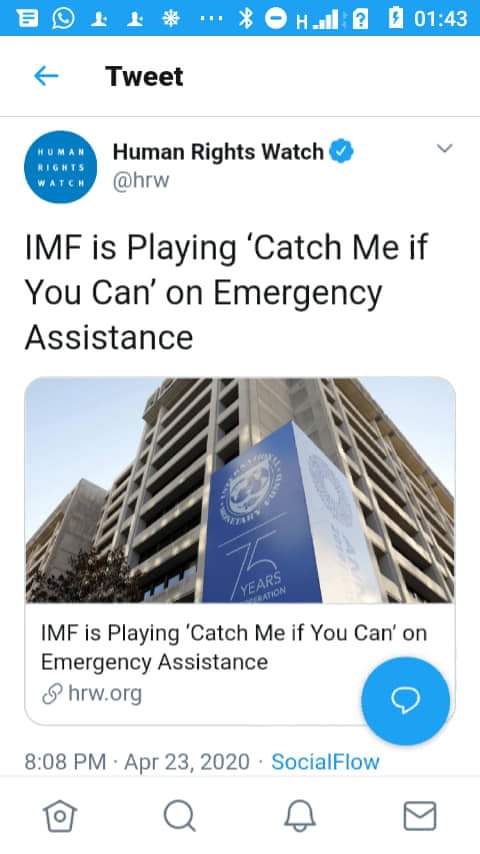
The International Monetary Fund (IMF) has responded to the collapse of the global economy from the Covid-19 pandemic with an unprecedented speed and scale of spending. Since March 26, it has approved over US$8 billion in emergency assistance and debt relief to 41 countries, and committed to spend up to $1 trillion. But despite promises to curb government mismanagement and corruption, the Fund hasn’t stepped up.
IMF assistance is crucial for protecting livelihoods and economies during a devastating pandemic. And the prompt dispersal of funds is important. But as the Fund itself has repeatedly said, the money is only as good as where it goes.
Corruption in the process will make it that much harder for governments to salvage their failing economies and protect people’s livelihoods.
Yet the IMF has done little thus far to ensure its billions in loans go to the right places. The loan agreements give governments lump-sum payments in exchange for vague commitments on spending and transparency that have no teeth.
Last week, IMF Managing Director Kristalina Georgieva said the fight against corruption shouldn’t take a “backseat” during the crisis: “Governments should spend what they can, but keep the receipts.” This suggests a retroactive accounting that will likely fall on nongovernmental monitoring groups to track government spending to identify and raise problems, especially in countries without independent government auditors and law enforcement.
If that is indeed the plan, it’s worse than taking a backseat – it’s handing officials the car keys and hoping they don’t steal the car. For civil society to track funds, they need government transparency and a safe space to operate.
The IMF needs to formally recognize independent monitoring organizations as stakeholders in loan agreements, establish a channel for them to report allegations of wrongdoing, and consider providing them necessary resources.
Monitoring groups are not law enforcement nor the government’s lender, both of which have authority to investigate and control the funds.
The IMF has shown a willingness to throw out its rulebook to help governments respond to this unprecedented crisis. It should now apply that same creativity and sense of urgency to help civil society groups ensure IMF funds go to the people who need it most.